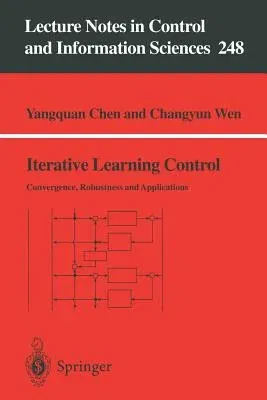Yangquan Chen
(Author)Iterative Learning Control: Convergence, Robustness and Applications (Edition.)Paperback - Edition., 22 September 1999

Qty
1
Turbo
Ships in 2 - 3 days
In Stock
Free Delivery
Cash on Delivery
15 Days
Free Returns
Secure Checkout
Part of Series
Lecture Notes in Control and Information Sciences
Print Length
204 pages
Language
English
Publisher
Springer
Date Published
22 Sep 1999
ISBN-10
1852331909
ISBN-13
9781852331900
Description
Product Details
Authors:
Book Edition:
Edition.
Book Format:
Paperback
Country of Origin:
US
Date Published:
22 September 1999
Dimensions:
23.39 x
15.6 x
1.17 cm
ISBN-10:
1852331909
ISBN-13:
9781852331900
Language:
English
Location:
London
Pages:
204
Publisher:
Weight:
312.98 gm

